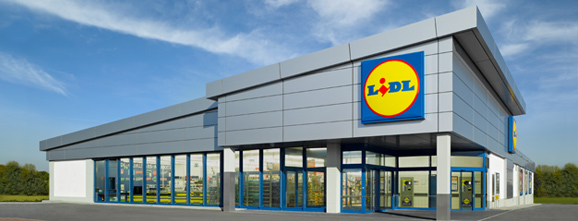 The supermarket wars are likely to escalate when German powerhouse Lidl enters the Australian market, reports The Australian. The global discount chain is applying for hundreds of trademarks covering thousands of supermarket products as a precursor to opening its doors there.
The supermarket wars are likely to escalate when German powerhouse Lidl enters the Australian market, reports The Australian. The global discount chain is applying for hundreds of trademarks covering thousands of supermarket products as a precursor to opening its doors there.
It is believed that Lidl has also been in contact with logistics providers in recent weeks in an effort to help create a network of distribution centres and transport links to shift food, groceries and merchandise around Australia.
Lidl, which was recently ranked by Deloitte as the fourth-biggest retailer in the world with nearly $US100 billion ($128bn) in annual sales, has applied for a portfolio of trademark classes with trademarks registry IP Australia covering thousands of items typically found in a full-line supermarket, reports The Australian.
Lidl’s history goes back to the 1930s, when the company was founded in Germany as a grocery wholesaler. Today, Lidl is one of the largest grocery retailers in Europe.
Lidl is now seeking to protect its name in Australia for a range of goods and services including paints, laundry and cleaning liquids, tools, cooking equipment, alcohol, stationery, furniture and camping equipment, household utensils, clothing, coffee, pastry and jams as well as meat, dairy, fruit and vegetable products.
Similar to its fellow German retailer Aldi, which has boomed in Australia since arriving in 2001 by stripping market share from Woolworths, Coles and independents, Lidl offers a no-frills shopping experience that includes private label groceries often displayed in their shipping pallets and with minimal store staff. Together with Aldi, Lidl has shaken up the supermarket sectors to strike a popular chord with shoppers in many other countries, from Britain to Bulgaria.
Lidl was expected to open in Australia last year, with speculation it had opened a corporate office and approached real estate agents to source store sites.
If Lidl, whose slogan is “where quality is cheaper”, does launch into the $90 billion Australian grocery sector, it will probably trigger even more pain for market heavyweights Woolworths and Coles, as well as independents, which have already seen Aldi snap up nearly 11% market share on the east coast.
Although Lidl has a strategy similar to that of Aldi in selling a limited line of groceries based on a private label offer, the German discounter also has a range of premium brands and a strong range of high-end wines.
Both Lidl and Aldi have proved ferocious and successful competitors in the markets they have entered, especially in Britain where they have grown faster than major chains such as Tesco and Asda. In the past few years Aldi and Lidl have doubled their share in the British grocery market.
Source: The Australian



